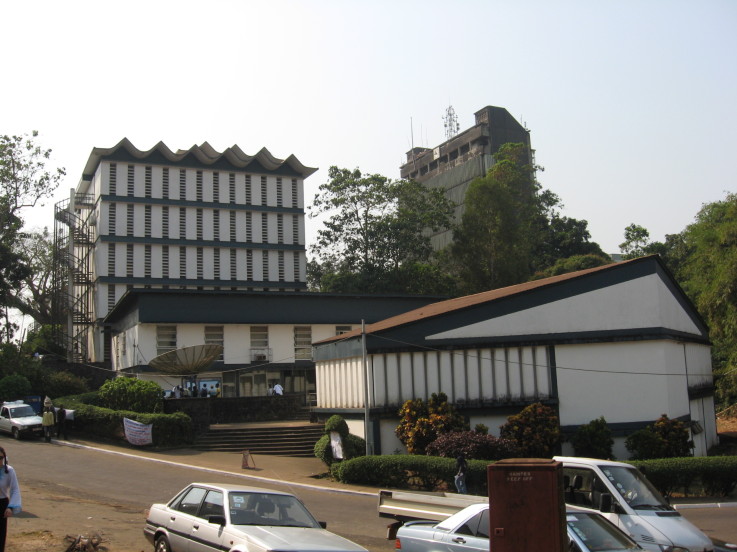The Mass Communication Department of Fourah Bay College, University of Sierra Leone, together with the Media Reform and Coordinating Group (MRCG), has continued the process of media reform in the areas dealing with capacity building and development of media institutions in the country.
The engagement took place at the conference hall of Culture Radio Station at Grafton in Freetown. The engagement involved industry players and actors, lecturers from the Mass Communications department and the Institute of Library and Information Studies, as well as a student representative.
Head of Department, Mass Communication, Fourah Bay College, University of Sierra Leone, Dr. Williette James, disclosed that the curriculum of the department had expired since 2015. In a power point presentation, she disclosed that the three areas will have Heads.
These three areas, according to Dr. James include: Communication and Public Relations, Information Services and Data Management, and Journalism and Media Studies. She spoke of multimedia which they had in mind but could not be factored in because of lack of the needed resources.
Dr. James also disclosed that upon completion of the process, the faculty will have a Dean as well as an Assistant Dean, and lecturers. She said they have worked tirelessly to see that the aforementioned areas have a comprehensive curriculum.
Student representative, Mohamed T. Massaquoi, said they have always been talking about standards at the department which he said they had longed for. Massaquoi applauded the Department for what he described as work well done. However, Massaquoi said he and his colleagues will continue to remind the University authorities to consider multimedia which he said is key to attracting the job market.
National Coordinator, Media Reform Coordinating Group (MRCG), and lecturer at the Mass Communication Department of F.B.C, Dr. Francis Sowa, said the review process focused on the area of curriculum at the Mass Communication Department as well as other institutions across the country.
Dr. Sowa added that at MRCG level they have the strongest conviction that if the media institutions across the country have the correct curriculum, as well as the different means of training media practitioners, it will improve the media landscape in the country.
He noted that he was very pleased that the Mass Communication Department which is a constituent body of MRCG, is leading on the process of curriculum development, noting that that is one of the key activities under the support MRCG has got from the National Endowment for Democracy (NED) in the United States of America.
He furthered that the process is part of a continuation of the work the MRCG secretariat had been doing. He revealed that MRCG, with support from U.N.D.P, played a pivotal role in the development of the then Mass Communication curriculum which expired in 2015, and is now being reviewed.
“Every aspect of the curriculum is being reviewed, ranging from the course description, topics, available resources, available manpower, and most importantly, what the media industry wants, what kind of graduate do they want, among other things,” he pointed out.
He described the whole process as a dream as well as an aspiration, noting that every dream and aspiration starts somewhere. “The creation of the faculty itself begins with a review of the curriculum. The next stage is to see whether we have the available resources, the laboratories, equipments, among others.
He furthered that they have been challenged by the University that it is the business of faculties to review its programs. “In other wards Mass Communication has done its own part which is to review its curriculum, and now suggest the needed resources to the University, which include human resources (lecturers with the necessary expertise).
“All new strategies that are relevant for modern day teaching will be utilized in this review process. Among the strategies to be utilized are: E-learning, employing online services (zoom, whatsapp, etc). This review is proposing modern means of teaching, which is why they will be highlighted as key resources needed,” he said.
He added that the review process will ensure student satisfaction by ensuring that the department offers the kinds of programs which the students want, so that they could be fit for the job market. He described the review process as a significant milestone, and called on lecturers to reflect and check what they have been doing, the approach they have been using, and learn from the mistakes of the past.
Chairman, Curriculum Review, Professor Alison A. Sesay, urged lecturers of the Department to do a pilot testing after the review process. “You should not review today and implement tomorrow, and those who are in the old program should complete the course with it, while the new students should start with the new one,” he said.
Professor Sesay stressed the need for academic and advisory section in the University which will be there to help students navigate from the first year of the course to the final year. He also spoke of program worksheet, program schedule, and checklist to prevent students from carrying over modules which they have failed in the lower years.
He recommended that the credit hours should be reduced, adding that there is an overload of credit hours. “The modular system should allow students to progress at their own pace,” he said.
He revealed that the review process is not yet over until it gets senate approval, and is then presented to the Teaching Service Commission (TEC) for its approval as well.
Director of Quality Assurance, Fourah Bay College, University of Sierra Leone, David Gjibao, said the engagement at Grafton demonstrates the level of work being done by the Department.
He mentioned that the University’s re-engineering program is an overall of our academic activities, which he said is an innovative way of doing things. He therefore called on other institutions to follow suit. He ended by thanking them for what he described as aspiring for quality.











